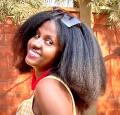

The beauty about knowing who you’re is that you can connect more with yourself and others. Photo/Net

The beauty about knowing who you’re is that you can connect more with yourself and others. Photo/Net

